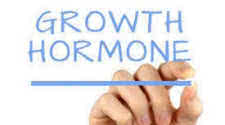Effects of Growth Hormone - Question and Answers

Should Men Introduce and Restore Growth Hormone Levels as they Age?
Do genetically engineered growth-hormone supplements really have any effect?
Some athletes who have taken supplemental growth hormone (hGH) report increased muscle mass from its use. This appears to result from an increase in the formation of connective tissues surrounding the muscle fibers and not from the creation of additional myofilaments within the muscle cell itself. Some studies have reported in-creased protein synthesis, however.Supplemental growth hormone can also reduce the fat stores of the body by increasing the amount of fatty acids taken from adipose tissue. These fatty acids then circulate in the blood, where they can be used for energy. HGH is also said to alter the body' s metabolism in favor of fatty acids, allowing more of the glycogen and protein in the muscles to be used for anabolic purposes. In addition, increased insulin production has been reported.
It should be noted that many athletes do not experience any benefit at all from supplemental growth hormone. While it is still not known why this occurs, individual variations in natural hormone levels may be part of the answer. There are also several other naturally occurring hormones in the body that act to keep the body's natural hGH within proper limits. It may be that these hormones neutralize the supplemental hGH in many instances.
The negative effects of supplemental hGH are only now becoming clear. The most serious result is acromegaly-an irreversible disease that results in thickening of the bones and organs. This thickening occurs throughout the body but is most visible in the hands, feet and face. The skin becomes very coarse, giving it the consistency of raw leather at high dosages. The aging process accelerates as well.
Big Foot is the legendary example of a person with acromegalic features. Many people who are naturally afflicted with acromegaly (due to hyperactive pituitaries) develop arthritis and diabetes and have very short life spans. It seems reasonable to assume that athletes who use supplemental growth hormone will become afflicted with these problems later in their lives. Moreover, if the hGH is from extracts of human pituitaries, there is danger of contamination, infection and antibody formation. These dangers are multiplied if the athlete resorts to primate growth hormone.
Since growth hormone injections are extremely expensive (costing several thousand dollars for a two-month administration), it seems clear that most athletes are throwing their money away. Imagine if they had spent all of those dollars on improving their diets or for nutritional supplementation. Surely the results would have been greater!
I've heard that steroids speed up your metabolism. Is there any truth to this?
Steroids do appear to stimulate a reduction in bodyfat below what would normally be expected from diet and exercise alone. The reasons for this are unclear, but some experts feel that steroids actually increase the basal metabolism of the user. Others speculate that steroids temporarily stimulate the growth of additional mitochondria in the cells, which play a key role in the oxidation of fats. This theory holds that the greater numbers of mitochondria allow for greater use of the fat stores for energy, eventually depleting them.
Even if steroids do have an effect, however, this does not mean that natural bodybuilders face an insurmountable disadvantage. Proper dietary manipulation can keep your metabolism from slowing down during a pre-contest diet, and aerobic exercise can actually increase your basal metabolic rate year-round. Genetics also plays a major role in your metabolic set points and in your ability to modify them. We'll discuss contest diets and metabolic changes in a future fitFLEX article or blog entry.